 November 27, 2024
November 27, 2024
Indoor air quality (IAQ) is critical for health, comfort, and productivity in any building. From residential homes to commercial offices, and especially in healthcare facilities or industrial cleanrooms, ensuring clean air is vital. This is where Air Handling Units (AHUs) play a crucial role. These units circulate and condition the air within HVAC (Heating, Ventilation, and Air Conditioning) systems, and the filters they use determine the quality of air we breathe.
When it comes to air filters, two terms frequently come up: HEPA filters and MERV filters. But what’s the difference, and why does it matter? This article will explain these differences, highlight their applications, and guide you in choosing the right filter for your AHU needs.
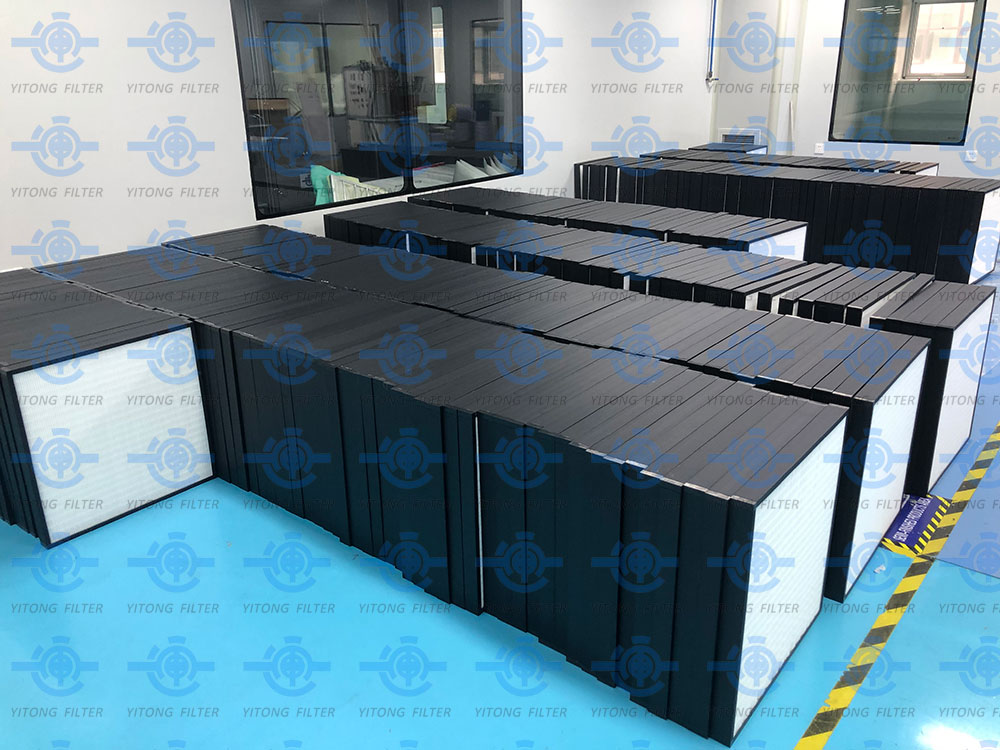
HEPA stands for High-Efficiency Particulate Air. These filters are known for their exceptional ability to capture very small particles. Here's a closer look at what makes HEPA filters so effective:
HEPA filters use a combination of three main mechanisms to trap particles:
- Diffusion: Small particles collide with gas molecules and get trapped.
- Interception: Particles follow the air stream but stick to fibers when passing close by.
- Impaction: Larger particles collide directly with the filter fibers and get stuck.
This multi-layered approach allows HEPA filters to capture up to 99.97% of particles as small as 0.3 microns. For context, human hair is about 70 microns in diameter, so HEPA filters can remove much smaller contaminants, including dust, pollen, mold spores, bacteria, and viruses.
HEPA filters are classified based on their efficiency:
- H10 to H12: Standard HEPA filters used in many household air purifiers.
- H13 and H14: These are more advanced and used in medical and industrial settings. For example, an H14 filter captures 99.995% of particles as small as 0.3 microns.
HEPA filters are used in environments that require extremely clean air:
- Hospitals and Operating Rooms: To prevent infections.
- Pharmaceutical Manufacturing: Ensuring sterile conditions.
- Cleanrooms: Used in electronics and aerospace industries.
- Laboratories: Protecting against contamination.
- Extremely high efficiency.
- Essential for environments where air quality is critical.
- More expensive than standard filters.
- Require regular maintenance and can reduce airflow if not properly managed.
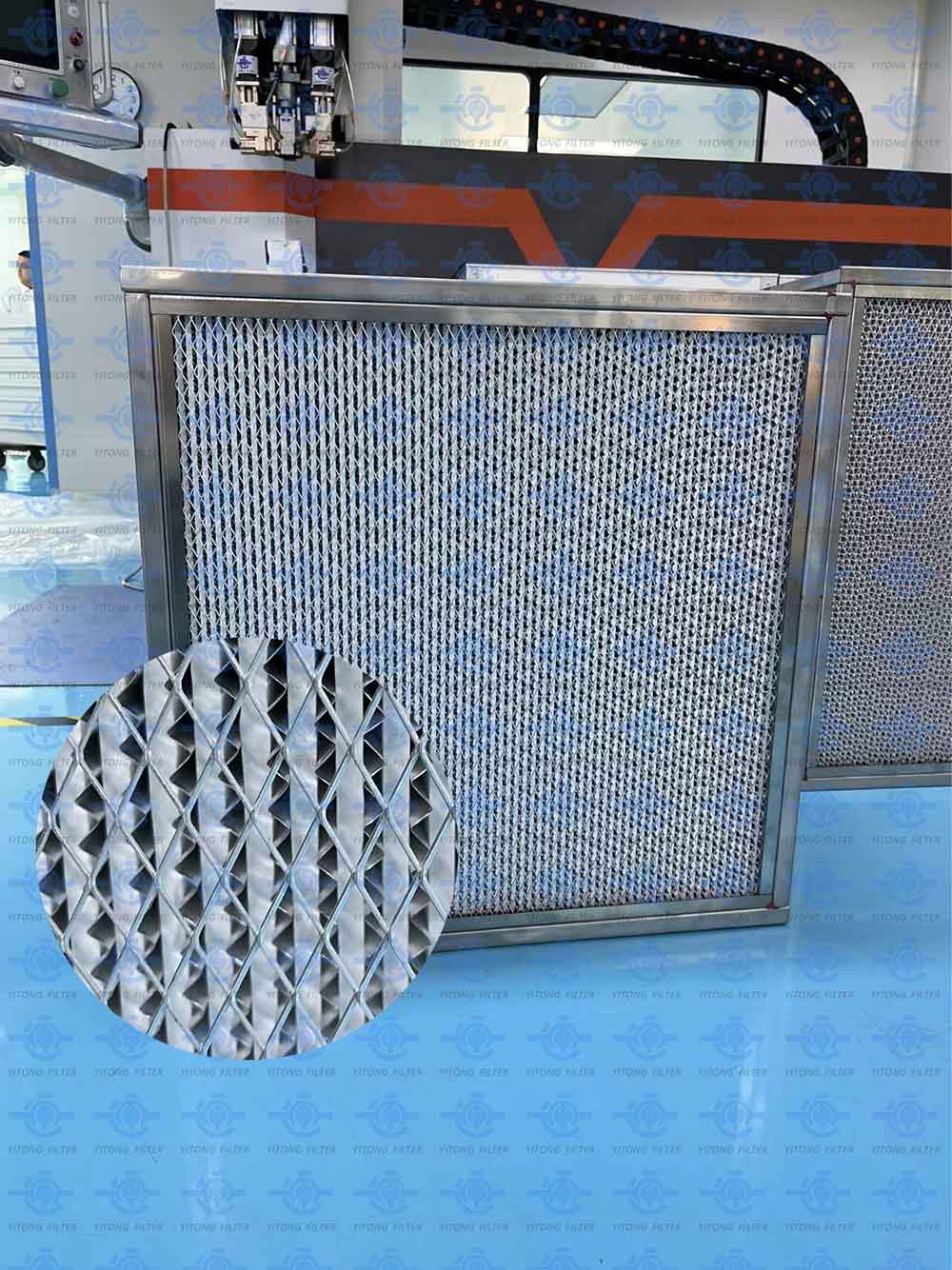
MERV stands for Minimum Efficiency Reporting Value. It is a rating system developed by the American Society of Heating, Refrigerating, and Air-Conditioning Engineers (ASHRAE) to measure the effectiveness of air filters.
MERV ratings range from 1 to 16, with higher numbers indicating better filtration efficiency. Here's a breakdown:
- MERV 1-4: Basic filtration. Captures large particles like dust mites and pollen.
- MERV 5-8: Common in residential systems. Captures mold spores and household dust.
- MERV 9-12: Better for commercial use. Captures lead dust and fine particulates.
- MERV 13-16: High-efficiency filters used in hospitals and cleanrooms. Captures bacteria and some viruses.
MERV filters use a dense mesh of fibers to trap particles as air passes through. Higher MERV ratings mean denser fibers, which capture smaller particles. However, denser filters can also restrict airflow if not properly sized or maintained.
- Residential HVAC Systems: Improve indoor air quality in homes.
- Commercial Buildings: Ensure clean air in offices and public spaces.
- Industrial Facilities: Protect equipment and processes from dust contamination.
- More affordable than HEPA filters.
- Available in a wide range of efficiencies to suit different needs.
- Easier to install and maintain.
- May not capture ultrafine particles as effectively as HEPA filters.
- High MERV ratings can restrict airflow, increasing energy costs.
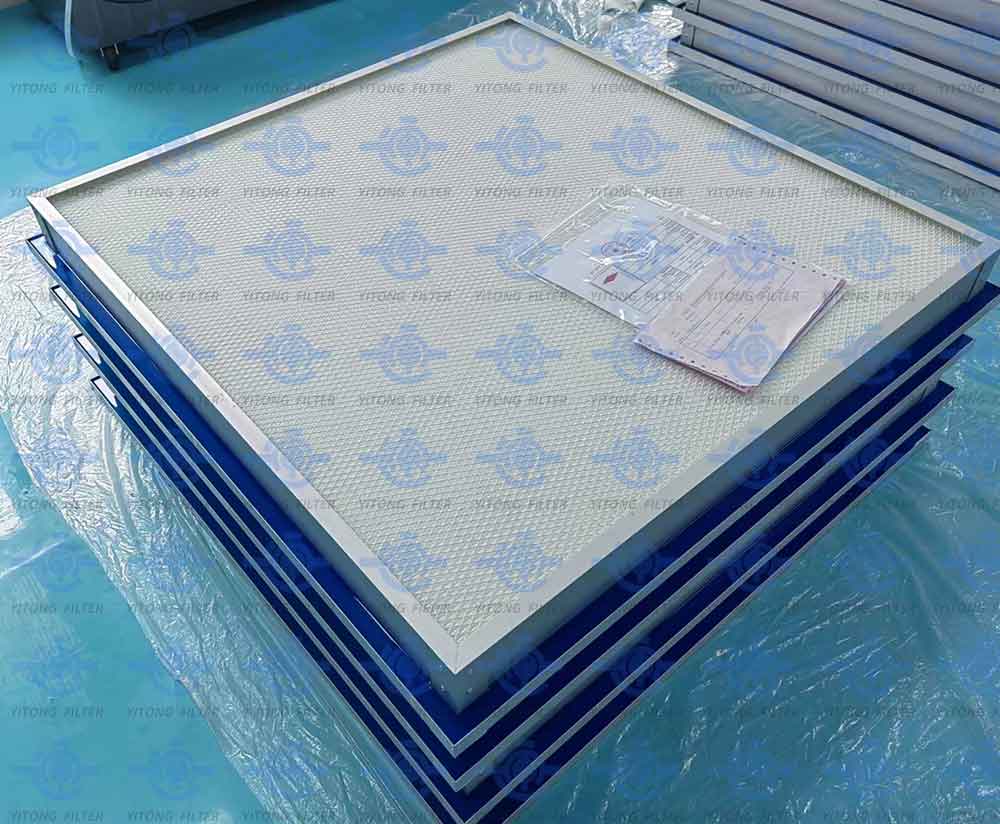
Understanding the differences between HEPA and MERV filters is crucial for selecting the right filter for your AHU. Here’s a detailed comparison:
- HEPA: Removes 99.97% of particles as small as 0.3 microns. It is the gold standard for high-efficiency filtration.
- MERV: Efficiency varies by rating. For example, MERV 13 filters capture 90% of particles between 1 and 3 microns, but may miss some ultrafine particles.
- HEPA: Effective against a wide range of particles, including bacteria, viruses, and fine dust.
- MERV: Higher MERV ratings (13-16) can capture particles down to 0.3 microns but are generally less effective than HEPA at this level.
- HEPA: More expensive upfront and requires more frequent replacement. Higher maintenance costs.
- MERV: More cost-effective, especially for lower ratings. Easier to maintain.
- HEPA: Denser filters can reduce airflow, requiring more powerful fans and increasing energy consumption.
- MERV: Higher MERV ratings can also impact airflow but are generally more efficient than HEPA filters in standard HVAC systems.
- HEPA: Best for critical environments like hospitals, cleanrooms, and laboratories.
- MERV: Suitable for residential, commercial, and industrial use. MERV 13-16 filters are increasingly popular for improving IAQ in offices and schools.
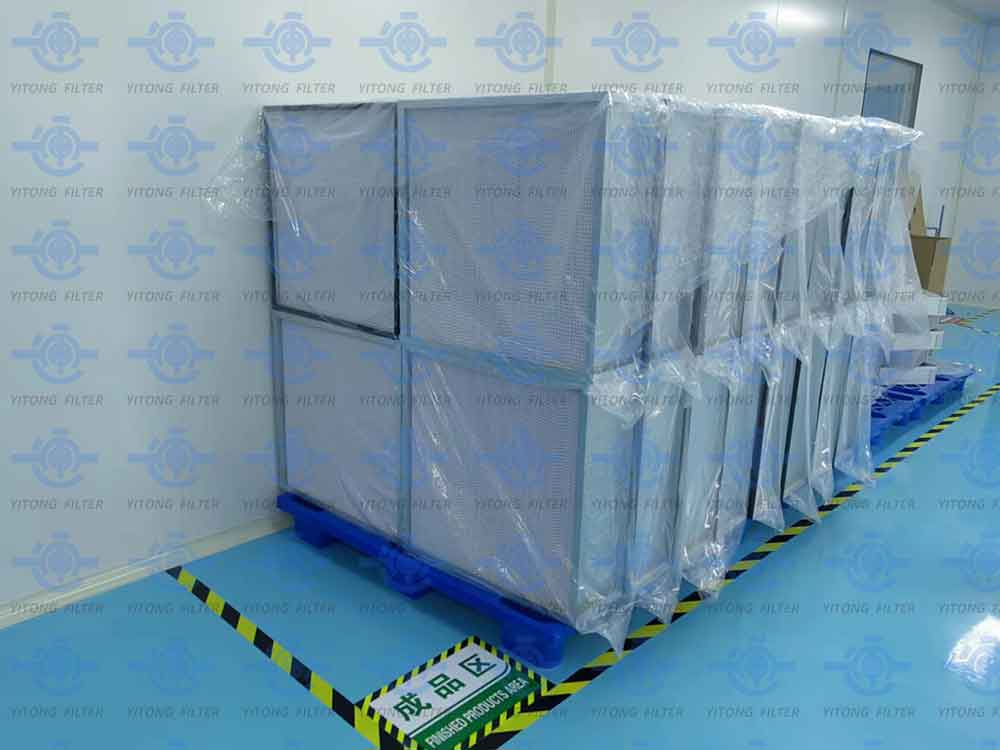
- Environment: What level of air purity is needed? Hospitals require HEPA filters, while most homes or offices do well with MERV 8-13.
- Budget: HEPA filters are more expensive, but sometimes necessary. MERV filters offer a range of affordable options.
- Energy Costs: Consider the impact on airflow and energy efficiency. High-efficiency filters may increase operational costs if the AHU is not designed for them.
- Hospital AHU: Use HEPA filters to ensure sterile conditions.
- Office Building: A MERV 13 filter offers excellent filtration without the high cost of HEPA.
- Residential HVAC: MERV 8-12 filters balance cost and performance for most homes.
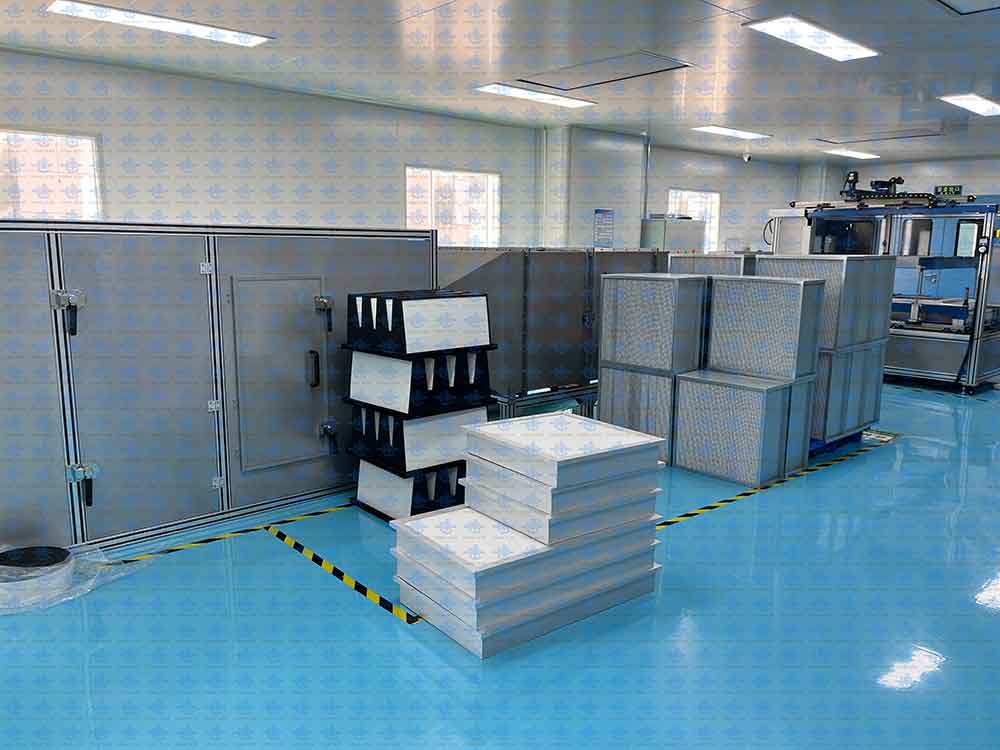
The type of filter you choose affects not just air quality but also your AHU’s performance:
- Higher Efficiency = Higher Resistance: HEPA and high-MERV filters can reduce airflow, requiring the system to work harder.
- Regular Maintenance Matters: Dirty filters reduce efficiency and can strain your HVAC system, leading to higher energy bills.
- Monitor Filter Condition: Replace filters regularly.
- Check AHU Compatibility: Ensure your system can handle the filter type without reducing airflow excessively.
- Consider Hybrid Solutions: Some systems use both MERV and HEPA filters at different stages for optimal performance.
Choosing between HEPA and MERV filters depends on your specific needs. For critical environments like hospitals or cleanrooms, HEPA filters are indispensable. For residential or commercial use, MERV filters provide a cost-effective way to improve indoor air quality.
Understanding these differences ensures you select the right filter for your AHU, balancing air quality, cost, and energy efficiency.
A: It’s possible, but you need to ensure your system can handle the airflow resistance without reducing performance.
A: MERV 13 filters capture many airborne viruses, but for higher protection, especially in healthcare settings, HEPA filters are recommended.

